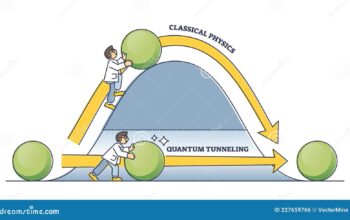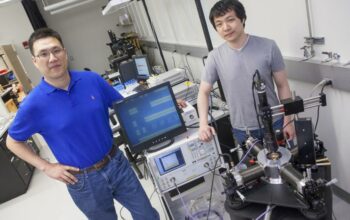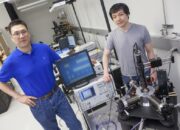Nuclear physics, a profound and multifaceted discipline, delves into the innermost workings of atomic nuclei and the forces governing them. The allure of this field lies not only in its scientific intrigue but also in its substantial implications for energy solutions, medical advancements, and national security. Thus, those seeking to embark on a journey to become a nuclear physicist must prepare themselves through rigorous academic training, practical experience, and continuous learning.
To embark on this intellectual odyssey, one must first lay a strong academic foundation. An undergraduate degree in physics is mandatory, supplemented by coursework in mathematics, chemistry, and advanced laboratory techniques. Physics, as a discipline, requires not just mathematical aptitude but also conceptual creativity to visualize phenomena that are often counterintuitive. Essential courses typically include classical mechanics, electromagnetism, thermodynamics, and quantum mechanics, as they form the bedrock of understanding complex nuclear interactions.
However, merely completing an undergraduate program is insufficient. Aspiring nuclear physicists typically pursue advanced degrees, specifically a Master’s degree followed by a Ph.D. During these stages, students delve deeper into specialized areas such as nuclear structure, nuclear reactions, and particle physics. Graduate studies often involve a combination of rigorous coursework and research, where students engage in cutting-edge projects that contribute to the field’s body of knowledge. Selecting a suitable research advisor and area of specialization can significantly influence one’s career trajectory, as these early decisions will shape future opportunities in academia, industry, or government positions.
Research experience is paramount in this field. Engaging in research during both undergraduate and graduate phases offers firsthand exposure to experimental and theoretical methodologies. Internships at national laboratories or research institutions further enhance practical skills and provide invaluable networking opportunities. Programs such as those at the Fermi National Accelerator Laboratory or the Oak Ridge National Laboratory offer summer research opportunities that elucidate the real-world applications of nuclear physics while fostering collaboration and innovation. Active participation in conferences, seminars, and workshops is essential, allowing for the dissemination of one’s research findings and the acquisition of knowledge about the latest advancements.
It is also noteworthy that the field of nuclear physics is dynamically intertwined with technological advancements. As global challenges, such as climate change and energy crises escalate, nuclear physics presents viable solutions through nuclear energy and medical applications like radiation therapy. Nuclear physicists are at the forefront of not just understanding atomic interactions but applying this knowledge for societal advancement. Understanding subjects such as the principles of nuclear fission and fusion, as well as emerging technologies in nuclear reactors, is crucial for those pursuing careers in energy production. Furthermore, expertise in particle accelerators and detectors is indispensable for anyone interested in experimental research.
In addition to academic and practical knowledge, there are soft skills that are equally vital. Effective communication, both written and verbal, is crucial in conveying complex ideas to diverse audiences, which can range from policymakers to the general public. Collaboration skills are also essential, as nuclear physics often involves working in teams, particularly in large projects that require interdisciplinary expertise. Moreover, fostering a strong ethical understanding of nuclear technology’s implications is indispensable, given the delicate nature of nuclear research and its potential consequences for humanity.
A career in nuclear physics frequently leads to varied opportunities across academia, industry, and government. Academic positions may involve teaching at universities while conducting research, publishing papers, and mentoring students. In industry, nuclear physicists can engage in the development of nuclear reactors, advanced materials, or radiation detection technologies. Additionally, government careers can span roles in national security, regulatory bodies, or public health initiatives. Each pathway carries distinct responsibilities and challenges, requiring a nuanced understanding of the underlying science and its application.
Committing to continuous learning is also pivotal. The field of nuclear physics is rapidly evolving; thus, remaining abreast of new theories, experimental techniques, and technological innovations is critical. Engaging in lifelong learning can be accomplished through academic journals, professional associations, and online courses, keeping one’s knowledge relevant and sharp.
Finally, the personal journey to becoming a nuclear physicist is one of curiosity, resilience, and passion. The pursuit may be laden with challenges, including complex problem-solving and the occasional failure of experiments. However, these hurdles often serve as fertile ground for innovation and discovery that can lead to breakthroughs. Each step through the educational labyrinth brings one closer to unlocking the vast potential that lies within the kernels of atomic nuclei.
The path to nuclear physics is a profound commitment to understanding the intricacies of the universe at its most fundamental level. With dedication, rigorous training, and an unyielding curiosity, the aspiring nuclear physicist can contribute to a future where knowledge of atomic interactions aids not only in scientific understanding but also in the betterment of society as a whole.












